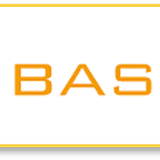Entrepreneurial Intentions And Readiness For Startup Among P2MW Grant Recipients
DOI:
https://doi.org/10.24912/je.v29i2.2107Abstract
The government has launched the Student Entrepreneurship Development Program (P2MW) to boost entrepreneurship in Indonesia. This study examines how entrepreneurial education, experience, and innovation influence entrepreneurial intentions and readiness to start a business. The research employs a descriptive method, using 80 students who received P2MW grants as samples. Data were collected through online and offline questionnaires using purposive sampling and analyzed with SEM-PLS using SmartPLS 4.0 software. The findings indicate no significant effect of entrepreneurial education on entrepreneurial intentions. However, entrepreneurial experience and innovation positively and significantly influence entrepreneurial intentions. The results also show a positive and significant impact of entrepreneurial intentions on readiness to start a business. This study recommends that the Ministry of Education and Culture encourage universities to create an entrepreneurial ecosystem within their environment to enhance students' readiness to start their businesses.
References
Adesola, S., den Outer, B., & Mueller, S. (2019). New Entrepreneurial Worlds: Can The Use Of Role Models In Higher Education Inspire Students? The Case Of Nigeria. Journal of Entrepreneurship in Emerging Economies, 11(4), 465–491. https://doi.org/10.1108/JEEE-08-2018-0076.
Ajzen, I. (2020). The Theory Of Planned Behavior: Frequently Asked Questions. Human Behavior And Emerging Technologies, 2(4), 314–324. https://doi.org/10.1002/hbe2.195.
Ajzen, I., & Kruglanski, A. W. (2019). Reasoned Action In The Service Of Goal Pursuit. Psychological Review. https://doi.org/10.1037/rev0000155.
Asmuruf, T. A., & Soelaiman, L. (2022). Entrepreneurship Intentions Among Vocational School Students In Sorong Regency-West Papua. Atlantis Press, 655, 1301–1306. https://dx.doi.org/10.2991/assehr.k.220404.208.
Doddy. (2023, June 21). Lahirkan Banyak Wirausahawan Muda Berkualitas, Kemendikbudristek Kembali Luncurkan Program Wirausaha Merdeka Tahun 2023. Direktorat Jenderal Pendidikan Tinggi, Riset, Dan Teknologi Kementerian Pendidikan, Kebudayaan, Riset, Dan Teknologi. https://dikti.kemdikbud.go.id/kabar-dikti/kabar/lahirkan-banyak-wirausahawan-muda-berkualitas-kemendikbudristek-kembali-luncurkan-program-wirausaha-merdeka-tahun-2023/.
Hair, J. F., Hult, G. T. M., Ringle, C. M., Sarstedt, M., Danks, N. P., & Ray, S. (2021). Partial Least Squares Structural Equation Modeling (PLS-SEM) Using R. Springer. https://doi.org/10.1007/978-3-030-80519-7
Hair, J. F., Matthews, L. M., Matthews, R. L., & Sarstedt, M. (2017). PLS-SEM Or CB-SEM: Updated Guidelines On Which Method To Use. International Journal Multivariate Data Analysis, 1(2), 107–123. https://doi.org/https://doi.org/10.1504/IJMDA.2017.087624.
Hair, J. F., Sarstedt, M., Ringle, C. M., & Gudergan, S. P. (2018). Advanced Issues in Partial Least Squares Structural Equation Modeling. Sage Publications.
Jiatong, W., Murad, M., Bajun, F., Tufail, M. S., Mirza, F., & Rafiq, M. (2021). Impact Of Entrepreneurial Education, Mindset, And Creativity On Entrepreneurial Intention: Mediating Role Of Entrepreneurial Self-Efficacy. Frontiers in Psychology, 12. https://doi.org/10.3389/fpsyg.2021.724440.
Joseph F. Hair, Jr., William C. Black, Barry J. Babin, & Rolph E. Anderson. (2019). Multivariate Data Analysis, Eds.; 8th ed.). Cengage Learning EMEA.
Malhotra, N. K. (2020). Marketing Research: An Applied Orientation (seventh). Pearson Education Limited.
Mamun, A. Al, Nawi, N. B. C., Mohiuddin, M., Shamsudin, S. F. F. B., & Fazal, S. A. (2017). Entrepreneurial Intention And Startup Preparation: A Study Among Business Students In Malaysia. Journal of Education for Business, 92(6), 296–314. https://doi.org/10.1080/08832323.2017.1365682.
Mark Conner. (2020). Theory of Planned Behavior. In Gershon Tenenbaum & Robert C. Eklund (Eds.), John Wiley & Sons (fourth, Vol. 1). John Wiley & Sons.
Maziriri, E. T., Nyagadza, B., & Chuchu, T. (2022). Innovation Conviction, Innovation Mindset And Innovation Creed As Precursors For The Need For Achievement And Women’s Entrepreneurial Success In South Africa: Entrepreneurial Education As A Moderator. European Journal of Innovation Management, 1–24. https://doi.org/10.1108/EJIM-03-2022-0156.
Nguyen, A. T., Do, T. H. H., Vu, T. B. T., Dang, K. A., & Nguyen, H. L. (2019). Factors Affecting Entrepreneurial Intentions Among Youths In Vietnam. Children and Youth Services Review, 99, 186–193. https://doi.org/10.1016/j.childyouth.2019.01.039.
Downloads
Published
How to Cite
Issue
Section
License
Copyright (c) 2024 Jurnal Ekonomi

This work is licensed under a Creative Commons Attribution-NonCommercial-ShareAlike 4.0 International License.
This journal provides immediate open access to its content on the principle that making research freely available to the public supports a greater global exchange of knowledge.

This work is licensed under a Creative Commons Attribution-NonCommercial-ShareAlike 4.0 International License.


















